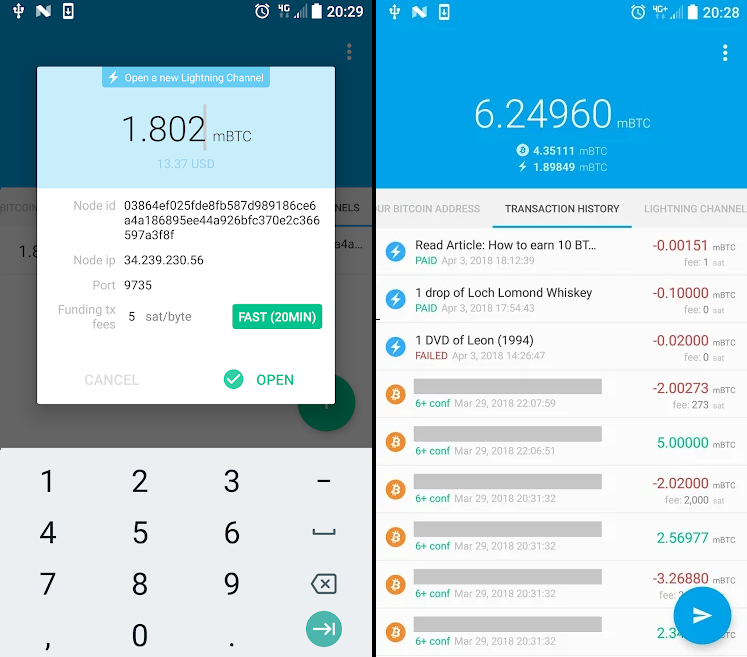Lightning Network Wallet Eclair Now Available on Mobile
Bitcoin users can now access the Lightning Network (LN) through their mobile devices, thanks to a new release from French cryptocurrency startup ACINQ.
On Wednesday, the Paris-based developer released the first mainnet version of Eclair Wallet, a mobile Lightning wallet compatible with Android devices versions 5.0 and up. The app is the first mobile wallet to add LN support, a key development given that one of the LN’s chief use cases is everyday payments.

Eclair — which is written in Scala — is one of three current LN implementations. Lnd, which is being developed by Lightning Labs, is written in Go, while c-lightning — developed by Blockstream — is written in C.
The mobile Eclair app interfaces with both the normal Bitcoin blockchain and the off-chain Lightning Network, so users do not need a separate Bitcoin wallet for on-chain transactions.
It has already begun earning rave reviews from users, citing its speed and usability.
However, there are several things of which prospective users should be aware.
The normal Bitcoin wallet can be backed up by generating a seed and then writing it down and storing it in a secure location.
On the other hand, funds stored in LN channels cannot currently be backed up through the app, so users will lose their funds if they lose access to their mobile device — just as if the funds were cash stored in a physical wallet.
Users should also be aware that Eclair’s LN wallet cannot currently accept payments, which would have been unwise to do anyway since the wallet cannot be recovered if lost.
Moreover, LN software only recently entered beta, so while certain implementations have technically been deemed mainnet-ready it is also still in testing and could have bugs and other vulnerabilities that cause users to lose their funds.
As CCN.com reported, an individual or group has launched a coordinated Denial-of-Service (DoS) attack against LN-connected nodes over the past several weeks. Pseudonymous developer bitPico has claimed responsibility for the attack — which does not appear to have a financial incentive — and has said that it is a “stress test” for the network, not a malicious attempt to derail the project.